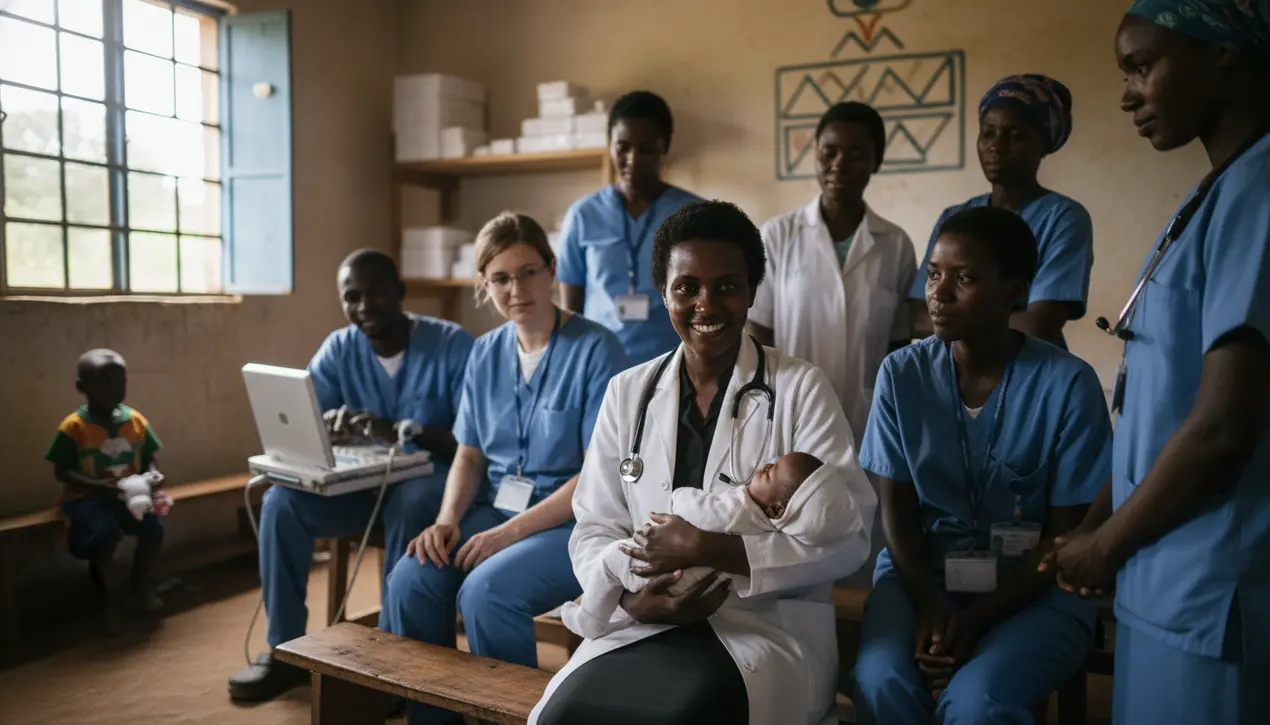
SciencemedicineGlobal Health Policy
Free cancer treatment and five other ideas to transform global health
RA
Rachel Adams
2 hours ago7 min read1 comments
In a year where devastating cuts to foreign aid and horrific humanitarian crises threatened to unravel decades of global health progress, a defiant cohort of leaders emerged, refusing to let the foundational pillars of human well-being crumble. Their work, rooted in a profound understanding of ecological and systemic interdependence, represents a vital lifeline.Consider the transformation underway in Rwanda, a nation once synonymous with genocide that has painstakingly built a health care system now serving as a global model. Under Health Minister Sabin Nsanzimana, Rwanda has achieved near-universal health coverage, slashed child mortality by a staggering 78 percent, and this summer began providing free cancer treatment—a monumental step toward health equity.This resilience was tested dramatically when the Marburg virus, a deadly relative of Ebola, was detected in a tin mine worker in September 2024. Yet, drawing on a deeply integrated network of community health posts and a robust surveillance system, Nsanzimana’s team rolled out an emergency vaccine trial within ten days and contained what could have been a catastrophic outbreak in just three months.This is not mere crisis management; it is the result of a long-term, deliberate investment in a healthy societal ecosystem, proving that a nation’s health infrastructure is its most critical defense against biological threats, much like a rainforest’s biodiversity protects it from collapse. This same principle of systemic care extends to the work of Anita Zaidi at the Gates Foundation, a pediatrician who began her career in a Pakistani fishing village fighting child mortality.She champions the powerful, data-backed idea that poverty is inherently sexist, and her leadership of a new $2. 5 billion commitment to women’s health aims to correct historical imbalances in research and development.The innovations she champions—from high-tech portable ultrasound devices to simple postpartum hemorrhage drapes—are not just medical tools; they are instruments of ecological restoration for societies, ensuring that the health of women, the primary caregivers in most communities, is no longer an afterthought. This holistic view is mirrored, albeit from a different angle, by the unflinching advocacy of Ms.Rachel. From her origins as an educator creating content for her son with a speech delay to becoming a global phenomenon with 13 billion views, she has leveraged her platform to force a confrontation with uncomfortable truths.Her focus on the catastrophic malnutrition crisis in Gaza, where over 320,000 children are at risk, is a stark reminder that the well-being of children is a universal indicator of our planetary health. When she sings with Rahaf, a three-year-old double amputee from Gaza, or highlights the haunting image of malnourished infant Siwar Ashour, she is performing a vital act of bearing witness, insisting that geography does not negate a child’s right to safety, food, and care.Meanwhile, in the ruins of Syria, Raed al-Saleh’s journey embodies a different kind of regeneration. After more than a decade leading the White Helmets, pulling over 100,000 people from rubble, he now serves as Syria’s Minister of Environment, Emergencies, and Disaster Management, tasked with the monumental chore of rebuilding a nation’s physical and social fabric.His work now involves battling wildfires and clearing landmines, a testament to the long, arduous process of healing a landscape scarred by conflict. And in the realm of biosecurity, Beth Cameron’s warnings in The Atlantic about the absence of White House leadership on biodefense echo with the urgency of a climate scientist predicting a tipping point.Having established the NSC’s biosecurity office twice, only to see it dismantled, she continues her work at the Brown University Pandemic Center, understanding that preparedness is a continuous, non-negotiable investment. Similarly, when USAID was being dismantled, economist Caitlin Tulloch responded not with despair but with data, creating Project Resource Optimization to identify and funnel $110 million to the most cost-effective, life-saving aid programs, reaching an estimated 41 million people. In a world of finite resources and competing crises, these individuals demonstrate that progress is not a passive occurrence but an active, strategic, and deeply human endeavor to nurture and protect the fragile ecosystem of global health.
#global health
#humanitarian aid
#cancer treatment
#women's health
#biosecurity
#Gaza crisis
#featured
Stay Informed. Act Smarter.
Get weekly highlights, major headlines, and expert insights — then put your knowledge to work in our live prediction markets.
Related News
Comments
Loading comments...
© 2025 Outpoll Service LTD. All rights reserved.